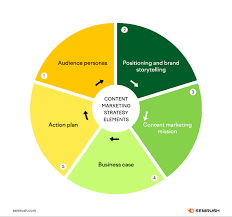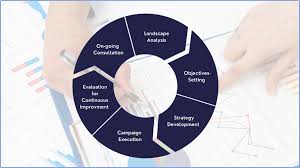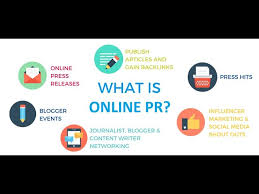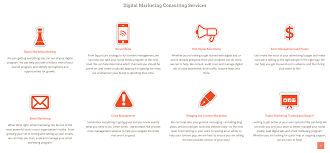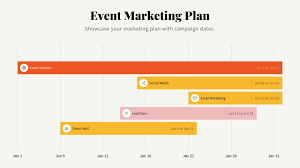Event Marketing: Creating Memorable Experiences for Brands
In today’s fast-paced and digital world, where consumers are bombarded with countless advertisements and messages, event marketing has emerged as a powerful strategy to cut through the noise and create lasting connections with target audiences. By bringing brands to life through immersive experiences, event marketing has become an essential tool for businesses looking to leave a lasting impression.
Event marketing goes beyond traditional advertising methods by creating opportunities for face-to-face interactions, fostering genuine engagement, and building brand loyalty. Whether it’s a product launch, trade show, conference, or community event, well-executed events can generate buzz, create brand awareness, and drive conversions.
One of the key advantages of event marketing is its ability to create a unique atmosphere that captures the essence of a brand. From the venue selection to the decor and interactive elements, every detail is carefully crafted to align with the brand’s values and messaging. This holistic approach allows brands to showcase their personality and differentiate themselves from competitors.
Moreover, events provide an ideal platform for businesses to demonstrate their expertise and thought leadership. Through workshops, keynote speeches, or panel discussions featuring industry experts, brands can position themselves as credible authorities in their respective fields. By sharing valuable insights and knowledge with attendees, businesses can build trust and establish themselves as go-to resources within their industries.
Another significant benefit of event marketing is its potential for generating media coverage. Well-planned events often attract journalists and influencers who are eager to share exciting stories with their audiences. The media coverage not only amplifies the reach of the event but also enhances the brand’s credibility by leveraging third-party endorsements.
Furthermore, events offer ample opportunities for networking and relationship building. Attendees have the chance to connect with like-minded individuals in an environment conducive to meaningful conversations. This networking aspect can lead to valuable partnerships or collaborations that extend beyond the event itself.
To ensure successful event marketing campaigns, meticulous planning is crucial. Clear objectives, target audience identification, and a well-defined budget are the foundations for a strategic event marketing plan. From there, careful consideration should be given to selecting the right venue, designing engaging activities, and leveraging technology to enhance attendee experiences.
In today’s digital age, event marketing doesn’t stop when the physical event ends. Brands should leverage social media platforms and other online channels to extend the reach of their events and engage with attendees even after they leave. By creating shareable content and encouraging attendees to share their experiences on social media, brands can continue to generate buzz and maintain momentum long after the event concludes.
In conclusion, event marketing has become an integral part of successful brand campaigns. By creating immersive experiences that engage audiences on a personal level, events have the power to leave a lasting impact in consumers’ minds. From building brand awareness to fostering loyalty and driving conversions, event marketing offers businesses a unique opportunity to connect with their target audience in meaningful ways. So, if you’re looking for an effective way to stand out from the crowd and create memorable experiences for your brand, consider incorporating event marketing into your strategy.
7 Essential Tips for Successful Event Marketing
- Get creative with your marketing strategies – think outside the box and make sure your event stands out from the rest.
- Utilise social media – create a hashtag, post updates and use platforms such as Facebook, Twitter and Instagram to promote your event.
- Network with influencers in your industry – use their influence to spread the word about your event and gain more exposure.
- Make sure you have an effective website for potential attendees to find information about the event quickly and easily.
- Offer discounts or incentives for early bookings or group bookings to encourage people to sign up in advance and bring friends along too!
- Create an email list of past attendees so that you can keep them updated on upcoming events they may be interested in attending again or recommending to others.
- Don’t forget about traditional methods of promotion such as posters, flyers, radio ads etc – these can still be effective when used alongside digital marketing strategies!
Get creative with your marketing strategies – think outside the box and make sure your event stands out from the rest.
Get Creative: Make Your Event Stand Out with Unique Marketing Strategies
In the competitive world of event marketing, standing out from the crowd is essential to capture the attention of your target audience. To achieve this, it’s crucial to think outside the box and get creative with your marketing strategies. By going beyond traditional approaches, you can create an event that leaves a lasting impression and sets your brand apart.
One effective way to make your event stand out is by incorporating unique and unexpected elements into your marketing efforts. Consider using unconventional venues that align with your brand’s image or choosing a theme that sparks curiosity and excitement among attendees. By deviating from the norm, you can create a sense of intrigue that draws people in and makes them eager to experience what your event has to offer.
Another way to get creative is by leveraging technology to enhance attendee experiences. Utilize interactive displays, virtual reality (VR) or augmented reality (AR) elements, or gamification techniques to engage and captivate your audience. These innovative technologies not only provide entertainment but also allow attendees to interact with your brand in memorable ways.
Additionally, consider collaborating with influencers or partnering with other brands that share similar values or target audiences. By joining forces, you can tap into each other’s networks and leverage their existing fan base for increased exposure. This cross-promotion not only expands your reach but also adds credibility to your event through association with trusted influencers or brands.
Furthermore, don’t underestimate the power of storytelling in making your event memorable. Craft a compelling narrative around your event that resonates with attendees on an emotional level. Whether it’s through captivating visuals, engaging videos, or thought-provoking content, storytelling helps create an immersive experience that leaves a lasting impact on participants.
Social media platforms are also valuable tools for getting creative with event marketing strategies. Encourage attendees to share their experiences using event-specific hashtags or run contests where participants can win exclusive prizes by posting about your event. User-generated content not only generates buzz but also provides authentic testimonials that can attract future attendees.
Lastly, consider incorporating surprise elements or exclusive perks into your event to make it truly unforgettable. Whether it’s unexpected performances, exclusive VIP experiences, or limited-edition merchandise, these special touches add an element of excitement and exclusivity that sets your event apart from others.
In conclusion, creativity is key when it comes to event marketing. By thinking outside the box and implementing unique strategies, you can create an event that stands out from the rest. From unconventional venues and immersive technologies to storytelling and social media engagement, there are countless opportunities to make your event memorable and leave a lasting impression on attendees. So, dare to be different and let your creativity shine through in every aspect of your event marketing efforts.
Utilise social media – create a hashtag, post updates and use platforms such as Facebook, Twitter and Instagram to promote your event.
Utilise Social Media: Harness the Power of Hashtags and Platforms to Boost Your Event
In the digital age, social media has become an indispensable tool for event marketing. With its vast reach and ability to engage audiences, platforms like Facebook, Twitter, and Instagram offer businesses a powerful means to promote their events and create a buzz. By leveraging social media effectively, you can maximise your event’s visibility and connect with your target audience in exciting new ways.
One of the key strategies to employ when using social media for event marketing is creating a unique hashtag. A hashtag acts as a digital rallying point for conversations related to your event. It allows attendees, sponsors, speakers, and even those unable to attend physically to participate in discussions and share their experiences online. A well-crafted hashtag should be short, memorable, and relevant to your event’s theme or brand. It serves as a virtual thread that ties together all the content shared across various social media platforms.
Once you have your hashtag sorted, it’s time to start posting updates about your event on social media. Regularly sharing engaging content builds anticipation among your target audience and keeps them informed about important details such as speakers, activities, or special offers. Utilize eye-catching visuals like images or videos that showcase the unique aspects of your event. You can also provide behind-the-scenes glimpses or sneak peeks of what attendees can expect. By generating excitement through these updates, you encourage people to follow along and share the information with their own networks.
Don’t limit yourself to just one platform; utilise multiple social media channels to broaden your reach. Facebook is an excellent platform for creating an event page where you can provide comprehensive details about your event while allowing attendees to RSVP or ask questions directly. Twitter is perfect for real-time updates during the event itself – live-tweeting key moments or sharing quotes from speakers helps generate immediate engagement from both attendees and those following along remotely. Instagram, with its visual focus, is ideal for sharing captivating photos and stories that capture the essence of your event.
To maximise the impact of your social media efforts, encourage attendees to actively engage with your event’s online presence. Encourage them to use the event hashtag in their own posts, share their excitement or experiences, and tag your official accounts. User-generated content not only adds authenticity but also expands your event’s reach to a wider audience. You can even incentivise participation by running contests or giveaways exclusive to those who engage with your event on social media.
Lastly, remember that social media engagement doesn’t end when the event is over. Take the opportunity to thank attendees for their participation and share highlights from the event through posts or videos. This helps extend the lifespan of your event’s impact and keeps attendees engaged for future events.
In conclusion, social media is a powerful tool that can significantly enhance your event marketing efforts. By creating a unique hashtag, regularly posting updates across various platforms, and encouraging attendee engagement, you can amplify your event’s visibility and create a community around it. So, embrace social media as an integral part of your event marketing strategy and unlock its potential to drive excitement and success for your upcoming events.
Network with influencers in your industry – use their influence to spread the word about your event and gain more exposure.
Harnessing the Power of Influencers: Boost Your Event Marketing Strategy
In today’s digital landscape, where social media has transformed the way we connect and engage with others, leveraging the influence of industry experts and influencers has become a game-changer in event marketing. By strategically networking with influencers in your industry, you can tap into their reach and credibility to amplify your event’s exposure and create a buzz that resonates with your target audience.
Influencers possess a strong following of loyal followers who trust their recommendations and opinions. By partnering with influencers relevant to your event’s theme or industry, you can tap into their established networks and benefit from their ability to captivate and engage audiences.
Firstly, identify the influencers who align with your event’s objectives. Look for individuals who have a genuine interest in your industry or niche, as well as a significant following on platforms like Instagram, YouTube, or LinkedIn. Quality over quantity is key here – focus on finding influencers whose values align with your brand and who have an engaged audience that matches your target demographic.
Once you’ve identified potential influencers, it’s time to build relationships. Reach out to them personally, expressing your interest in collaborating for mutual benefit. Offer them exclusive access to your event or provide them with valuable content related to the event’s topic that they can share with their followers. This way, you’re not only leveraging their influence but also providing them with unique content that adds value to their own platforms.
Collaborating with influencers can take various forms depending on the nature of your event. You could invite them as guest speakers or panelists at conferences or ask them to create engaging content about the event beforehand. Encouraging them to share their experiences during and after the event through social media posts, live streaming sessions, or blog articles will generate excitement among their followers while expanding your event’s reach.
Remember that authenticity is key when working with influencers. Encourage them to share their honest opinions and experiences about your event. This transparency builds trust with their audience and enhances the credibility of your event in the eyes of potential attendees.
Additionally, consider offering incentives to influencers who actively promote your event. This could include discounted or VIP access, exclusive merchandise, or even affiliate partnerships. By providing influencers with a tangible benefit, you encourage them to genuinely engage with your event and generate more buzz among their followers.
Networking with influencers in your industry is an effective strategy that can significantly enhance your event marketing efforts. Their influence can help you tap into new audiences, increase brand awareness, and drive attendance. So, take the time to identify and build relationships with relevant influencers who can become powerful advocates for your event. By working together, you can create a win-win situation where both parties benefit from increased exposure and engagement.
Make Your Event Shine with an Effective Website
In the digital age, having a well-designed and user-friendly website is essential for any successful event marketing campaign. Your website serves as the virtual hub where potential attendees can find all the information they need about your event quickly and easily. Let’s explore why having an effective website is crucial in driving engagement and maximizing attendance.
First impressions matter, and your event website is often the first touchpoint for potential attendees. A visually appealing and intuitive website design will instantly captivate visitors, making them more likely to explore further. Ensure that your website reflects the overall theme and branding of your event, creating a cohesive experience that resonates with your target audience.
When it comes to event information, simplicity is key. Make sure that all relevant details such as date, time, location, agenda, and registration process are readily available on your website. Potential attendees should be able to find this information within seconds of landing on your page. Clear call-to-action buttons for registration or ticket purchase should be prominently displayed to encourage conversions.
Consider incorporating interactive features on your website to enhance engagement. Include photo galleries or videos from past events to give visitors a taste of what they can expect. Testimonials or success stories from previous attendees can also help build credibility and generate excitement.
Mobile responsiveness is non-negotiable in today’s mobile-centric world. With a significant portion of web traffic coming from mobile devices, it’s crucial that your event website adapts seamlessly to different screen sizes. A mobile-friendly site ensures that potential attendees can access information on-the-go without any frustration or limitations.
Don’t forget about search engine optimization (SEO). Optimizing your event website with relevant keywords and meta tags will improve its visibility in search engine results pages. This means more potential attendees discovering your event organically when searching for related terms.
Integrate social media sharing buttons on your website to encourage visitors to spread the word about your event effortlessly. This can lead to organic promotion and increased attendance as attendees share their excitement with their networks.
Lastly, keep your website up-to-date with any changes or announcements regarding the event. Regularly update information, add new content, and engage with potential attendees through blog posts or newsletters. This demonstrates your commitment to delivering a memorable event experience and keeps attendees informed and engaged throughout the entire journey.
Remember, your event website is not just a static page but a dynamic tool that can drive engagement, boost attendance, and create anticipation for your event. By investing time and effort into creating an effective website, you are setting the stage for a successful event marketing campaign that leaves a lasting impression on potential attendees.
Offer discounts or incentives for early bookings or group bookings to encourage people to sign up in advance and bring friends along too!
Boost Your Event Attendance with Early Booking Discounts and Group Incentives
When it comes to event marketing, one effective tip to encourage people to sign up in advance and bring their friends along is by offering enticing discounts or incentives. By implementing this strategy, you can not only increase event attendance but also create a buzz around your event that will help generate even more interest.
One of the most compelling ways to attract early bookings is by offering exclusive discounts for those who register ahead of time. By providing a reduced ticket price or a percentage off the regular admission fee, you give potential attendees an incentive to commit early. This not only helps secure their attendance but also creates a sense of urgency that prompts them to take action sooner rather than later.
Additionally, offering group incentives can be a powerful motivator for people to bring their friends along. By providing discounted rates for group bookings or even offering complimentary tickets when a certain number of individuals register together, you tap into the power of social networks and word-of-mouth marketing. Friends are more likely to attend events together, and by incentivizing group bookings, you make it easier for them to convince others to join in on the experience.
These discounts and incentives not only encourage early sign-ups but also help build momentum for your event. As people take advantage of the offers and share their excitement with others, it creates a ripple effect that can lead to increased awareness and attendance.
To effectively implement this tip, start by setting clear deadlines for early booking discounts. Communicate these deadlines across your marketing channels such as your website, social media platforms, email newsletters, and any other relevant communication channels. Make sure that potential attendees are aware of the limited time frame within which they can secure these special rates.
When it comes to group incentives, highlight the benefits of attending as a group. Emphasize the shared experience, networking opportunities, or even additional perks that come with registering together. Provide clear instructions on how to take advantage of the group discounts and make the process as seamless as possible.
Remember to track the success of these incentives by monitoring the number of early bookings and group registrations. This data will not only allow you to measure the effectiveness of your strategy but also provide insights for future event planning and marketing efforts.
In conclusion, offering discounts or incentives for early bookings or group bookings is a powerful tactic to boost event attendance and create a sense of excitement around your event. By providing exclusive offers, you motivate potential attendees to take action sooner and encourage them to bring their friends along. So, leverage this tip in your event marketing strategy and watch as your event gains momentum and attracts a larger audience.
Create an email list of past attendees so that you can keep them updated on upcoming events they may be interested in attending again or recommending to others.
Maximizing Event Success: The Power of Building an Email List
In the world of event marketing, creating an email list of past attendees is a game-changer. It’s not just about hosting a successful event; it’s about nurturing relationships and building a community that keeps coming back for more. By harnessing the power of email marketing, you can keep your audience engaged and informed about upcoming events they may be interested in attending again or recommending to others.
Building an email list starts with capturing attendee information during registration or ticket purchase. By asking for their consent to receive future communications, you can create a valuable database of individuals who have already shown interest in your events. This list becomes a treasure trove of potential attendees who are already familiar with your brand and eager to stay connected.
Once you have this list, it becomes a powerful tool for event promotion. When planning new events, you can leverage your email list to send targeted and personalized messages directly to those who have shown interest in similar events in the past. By tailoring your communications based on their preferences and demographics, you increase the chances of capturing their attention and enticing them to attend again.
Moreover, keeping past attendees in the loop through regular email updates helps maintain engagement and strengthens their connection with your brand. By sharing exclusive content, sneak peeks, or early bird discounts for upcoming events, you make them feel valued and appreciated as part of your community. This sense of exclusivity can drive their excitement and encourage them to spread the word among their friends and colleagues.
Another advantage of having an email list is the ability to gather feedback from past attendees. Sending post-event surveys or requesting testimonials not only helps you understand what worked well but also provides valuable insights for improving future events. Additionally, positive testimonials from satisfied attendees can be used as social proof in future promotional campaigns, further enhancing your credibility.
Effective email marketing goes beyond just event promotion; it’s about building long-term relationships. By segmenting your email list based on attendee preferences, you can send targeted content that aligns with their interests. This could include relevant industry news, educational resources, or invitations to exclusive networking events. By providing value beyond the event itself, you position your brand as a trusted source of information and maintain engagement throughout the year.
It’s important to note that building an email list comes with responsibilities. Respecting data privacy and adhering to applicable regulations is crucial. Ensure that you have proper consent from individuals to receive emails and provide them with options to manage their subscription preferences. By being transparent and respecting their choices, you build trust and foster a positive relationship with your audience.
In conclusion, creating an email list of past attendees is a valuable asset in event marketing. It allows you to nurture relationships, keep your audience informed about upcoming events of interest, and leverage their advocacy by encouraging them to recommend your events to others. By implementing effective email marketing strategies, you can maximize event success and create a loyal community that keeps coming back for more exciting experiences.
Don’t forget about traditional methods of promotion such as posters, flyers, radio ads etc – these can still be effective when used alongside digital marketing strategies!
Don’t Underestimate the Power of Traditional Promotion in Event Marketing
In today’s digital age, it’s easy to get caught up in the allure of online advertising and social media promotion. While digital marketing strategies certainly play a vital role in event marketing, it’s important not to overlook the effectiveness of traditional methods of promotion. Posters, flyers, radio ads, and other traditional promotional tools can still make a significant impact when used alongside digital strategies.
One key advantage of traditional promotion is its ability to reach a wide range of people, including those who may not be as digitally connected. Not everyone is constantly scrolling through social media or checking their email inbox. By utilizing posters and flyers strategically placed in high-traffic areas, you can capture the attention of passersby who may be interested in attending your event but might have missed your digital promotions.
Moreover, traditional methods can help reinforce your brand message and create a sense of anticipation. Seeing an eye-catching poster or receiving a well-designed flyer can leave a lasting impression on potential attendees. These tangible materials provide a physical reminder of the event and can serve as visual cues that trigger interest and excitement.
Radio ads also offer a unique opportunity to engage with audiences on an auditory level. With carefully crafted scripts and captivating jingles, radio ads can create an emotional connection with listeners and generate curiosity about your event. The power of storytelling through audio is still relevant today and can be an effective way to pique interest and encourage attendance.
When combined with digital marketing strategies, traditional promotion methods can create a cohesive and multi-channel approach that maximizes reach and engagement. By incorporating QR codes or specific URLs on posters or flyers, you can seamlessly connect offline efforts with online platforms. This integration allows potential attendees to easily access more information about the event or make bookings directly from their smartphones or computers.
It’s important to note that while traditional promotion methods still hold value, they should be used strategically alongside digital strategies. By leveraging the strengths of both traditional and digital channels, you can create a comprehensive promotional campaign that maximizes your event’s visibility and impact.
In conclusion, event marketing should not solely rely on digital strategies. Traditional methods of promotion, such as posters, flyers, and radio ads, still have their place in capturing the attention of a diverse audience. By using these traditional tools alongside digital marketing techniques, you can create a well-rounded promotional campaign that reaches a wider range of potential attendees and generates excitement for your event. So, don’t forget to harness the power of traditional promotion in your event marketing efforts!



